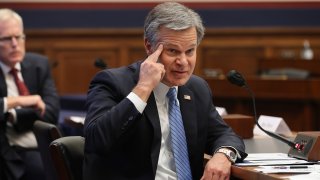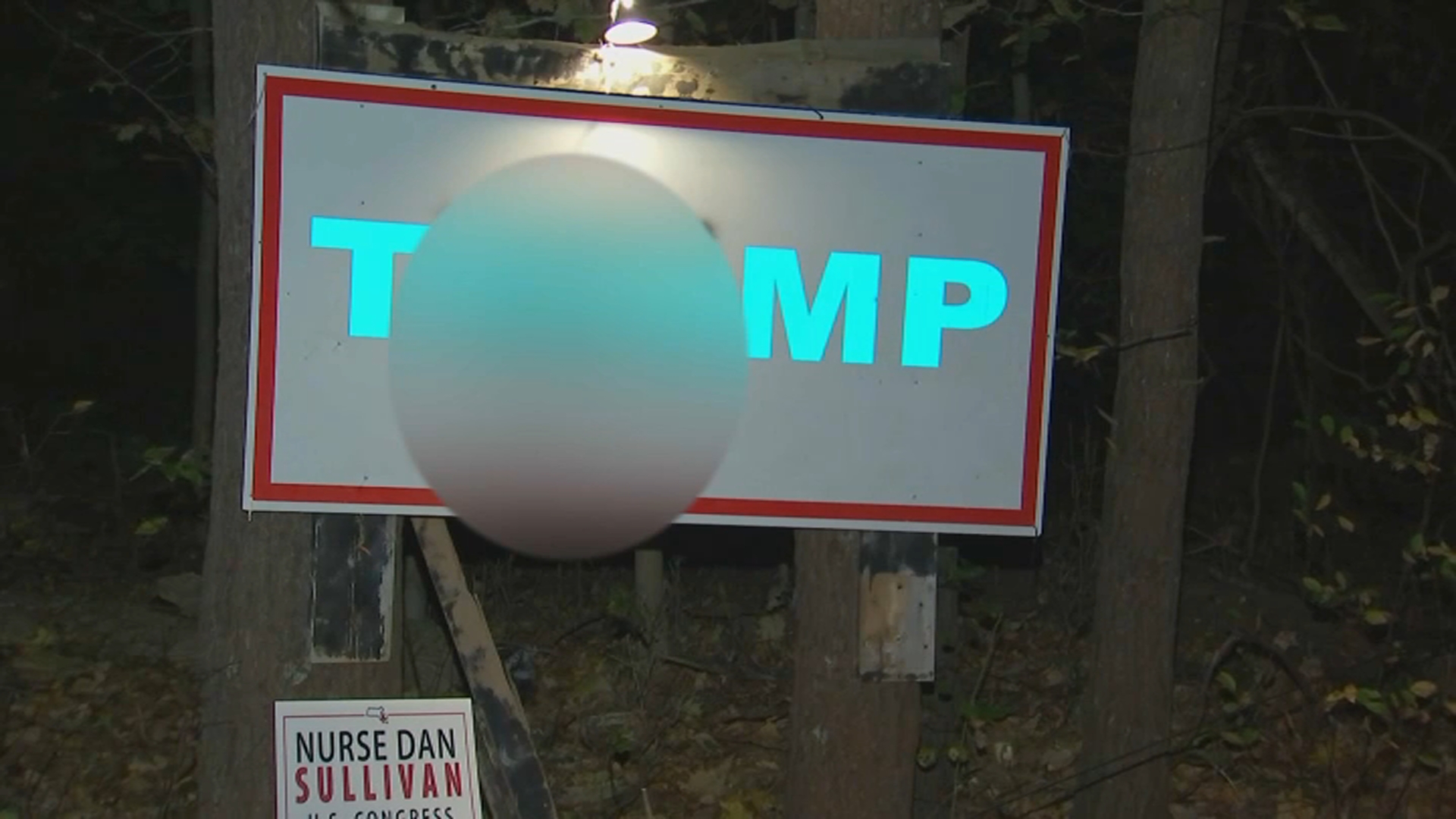
FBI Director Chris Wray told lawmakers Thursday that antifa is an ideology, not an organization, delivering testimony that puts him at odds with President Donald Trump, who has said he would designate it a terror group.
Hours after the hearing, Trump took to Twitter to chastise his FBI director for his statements on antifa and on Russian election interference, two themes that dominated a congressional hearing on threats to the American homeland.
Referring to antifa, the president wrote: “And I look at them as a bunch of well funded ANARCHISTS & THUGS who are protected because the Comey/Mueller inspired FBI is simply unable, or unwilling, to find their funding source, and allows them to get away with “murder”. LAW & ORDER!”
The Twitter barbs thrust Wray again into a spotlight that he has spent three years trying to avoid after his predecessor, James Comey, became entangled in politics before being ultimately fired. Though Wray said as recently as Thursday that the FBI made unacceptable mistakes during its investigation into ties between the Trump campaign and Russia, Trump nonetheless has intermittently lashed out at Wray over the pace of fixing those problems and continues to regard his intelligence community with suspicion because of the Russia probe.
Wray did not dispute in his testimony Thursday that antifa activists were a serious concern, saying that antifa was a “real thing” and that the FBI had undertaken “any number of properly predicated investigations into what we would describe as violent anarchist extremists,” including into individuals who identify with antifa.
But, he said, “It’s not a group or an organization. It’s a movement or an ideology.”
That characterization contradicts the depiction from Trump, who in June singled out antifa — short for “anti-fascists” and an umbrella term for far-left-leaning militant groups — as responsible for the violence that followed George Floyd's death. Trump tweeted that the U.S. would be designating antifa as a terrorist organization, even though such designations are historically reserved for foreign groups and antifa lacks the hierarchical structure of formal organizations.
Politics
The hearing before the House Homeland Security Committee — established after the Sept. 11 attacks to confront the threat of international terrorism — focused almost entirely on domestic matters, including violence by white supremacists as well as anti-government extremists. The topics underscored the shift of attention by law enforcement at a time of intense divisions and polarization inside the country.
But one area where foreign threats were addressed was in the presidential election and Russia’s attempts to interfere in the campaign.
Wray sought to make clear the scope of the threats the country faces while resisting lawmakers' attempts to steer him into politically charged statements. When asked whether extremists on the left or the right posed the bigger threat, he pivoted instead to an answer about how solo actors, or so-called “lone wolves,” with easy access to weapons were a primary concern.
"We don’t really think of threats in terms of left, right, at the FBI. We’re focused on the violence, not the ideology,” he said later.
The FBI director said racially motivated violent extremists, such as white supremacists, have been responsible for the most lethal attacks in the U.S. in recent years. But this year the most lethal violence has come from anti-government activists, such as anarchists and militia-types, Wray said.
Wray also affirmed the intelligence community's assessment of Russian interference in the November election, which he said was taking the form of foreign influence campaigns aimed at sowing discord and swaying public opinion as well as efforts to denigrate Democratic presidential nominee Joe Biden.
He said that the U.S. had not yet seen targeting of election infrastructure like in 2016, but efforts to sow doubt about the election's integrity are a serious concern, he said.
“What concerns me the most is the steady drumbeat of misinformation and sort of amplification of smaller cyber intrusions,” Wray said. “I worry that they will contribute over time to a lack of confidence of American voters and citizens in the validity of their vote."
“I think that would be a perception,” Wray added, “not a reality. I think Americans can and should have confidence in our election system and certainly in our democracy. But I worry that people will take on a feeling of futility because of all of the noise and confusion that's generated."
Trump has resisted the idea of Russian interference aimed at benefiting his campaign and has been eager, along with other administration officials, to talk about intelligence officials' assessment that China prefers that Trump lose to Biden.
He responded on that front Thursday evening, tweeting: “But Chris, you don’t see any activity from China, even though it is a FAR greater threat than Russia, Russia, Russia. They will both, plus others, be able to interfere in our 2020 Election with our totally vulnerable Unsolicited (Counterfeit?) Ballot Scam. Check it out!”
Though intelligence officials said in a statement last month that China prefers that Trump lose, they appeared to stop short of accusing Beijing of directly interfering in the election in hopes of swaying the outcome.



